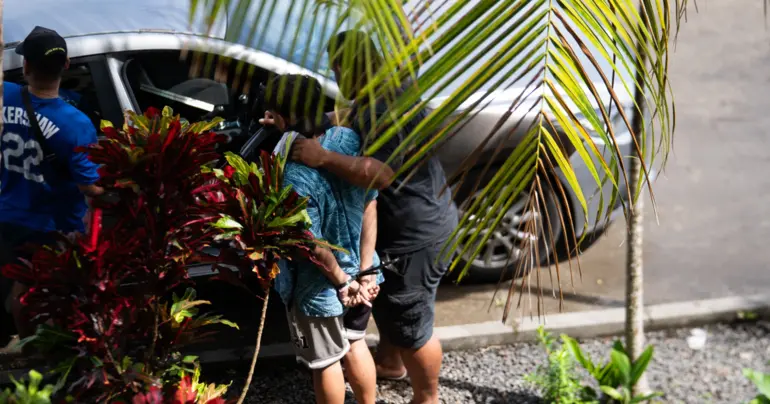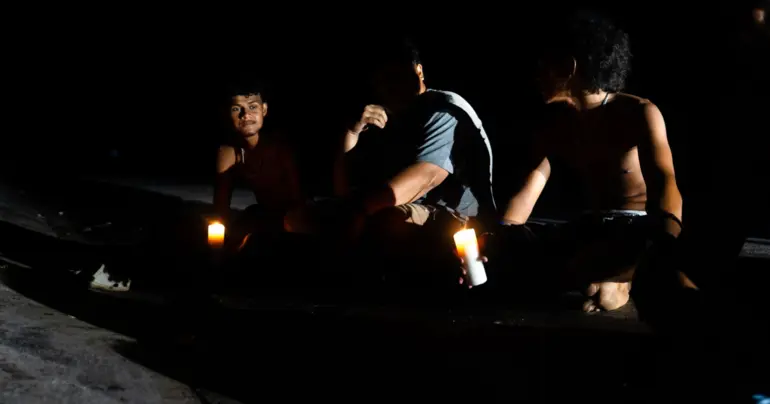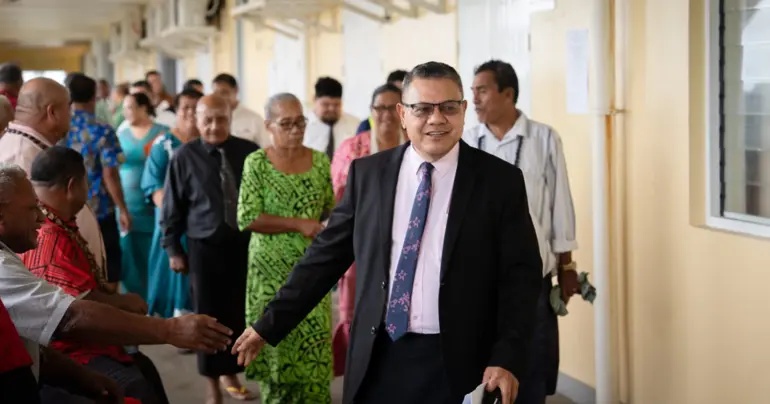U.N. goals a bridge too far as local challenges prevail
Samoa’s Prime Minister, Fiamē Naomi Mataʻafa was among the global leaders who addressed the 78th United Nations General Assembly last weekend in New York in the United States.
Her 20-minute speech to the General Assembly covered various aspects of Samoa’s development challenges from climate change to non-communicable diseases, as well as primary healthcare and international cooperation with Samoa’s various partners including the United Nations.
Amid the planetary crisis that has been brought about by extreme weather events in Africa, Europe and Asia, including the wildfires in Europe, Canada and Hawaii which led to the loss of lives, Fiamē said their root cases cannot be denied and called for the continued reduction in global emissions.
But there has also been some good news on the non-communicable disease (NCDs) front, which the Prime Minister highlighted to the General Assembly.
“Currently, chronic NCDs are overtaking communicable diseases as the dominant health problem, and are the leading causes of mortality, morbidity and disability,” said Fiamē in her speech. “At the national level - NCDs account for almost half of the deaths; premature deaths in fact, in Samoa.
“We have one of the highest obesity rates, particularly among children. Current data however shows some positive trends in the falling prevalence rates of alcohol drinkers and smokers and an increase in the prevalence of people who are physically active.
“These statistics are a catalyst for programs to promote healthier lifestyles.”
To hear that data from Samoa shows a drop in the prevalence rates of alcohol drinkers and smokers – and an increase in people who are physically active is great news indeed. Fiamē did not give any more information on the data but made reference to her administration’s various NCD-focused programs, which she believes enabled the empowering of communities who then promoted early detention, case referrals and awareness of the risk factors.
As a way forward to effectively address NCDs, Fiamē identified ordinary Samoans’ access to a “balanced and nutritional diet” as a national priority.
“It is important to return to locally produced quality fresh foods with less reliance on processed imported foods,” she told the General Assembly. “Nutrition and exercise in combination with other lifestyle changes will do more to curb NCDs but these efforts must be enhanced by financial support for advocacy and capacity building of our health and education professionals.”
We agree with the Prime Minister on the need to return to “locally produced quality fresh foods”. But a major challenge now facing many Samoan families is that locally produced fresh food is so expensive and beyond their weekly pay packets. They cannot afford fruits and vegetables being sold in markets within and outside Apia and the price increases are not showing any signs of abating.
In fact, in all local supermarkets, it is now much cheaper to buy imported processed food for the family rather than pay double for locally grown organic food. Families are being forced to make those tough choices to the detriment of their health and the fight against NCDs.
When the Prime Minister returns to the island from her overseas travel, she should meet with the Agriculture and Livestock Minister, La’auli Leuatea Schmidt to discuss the country’s agricultural production and how the absence of villages’ productive male population who are away on seasonal work is already triggering a food security crisis.
Minister La’auli went public on this labour shortage in Samoa’s rural communities in an interview with this newspaper early this month. Failure by the current Fa’atuatua i le Atua Samoa ua Tasi (FAST) administration to address it could have health ramifications, if not now then in the near future.
Last week the outgoing Minister for Commerce, Industry and Labour, Leatinuu Wayne So’oialo revealed details of the Samoa Government’s new policy for the seasonal work programs in Australia and New Zealand. Only a few months old, it remains unknown if the new policy will be able to address the country’s labour shortage crisis, especially the community farming sector which appears to be the hardest hit and is directly linked to villages and families. The battle against the spread of the NCDs in Samoa will be inhibited if the status quo remains and families’ reliance on cheap processed food continues to grow.











